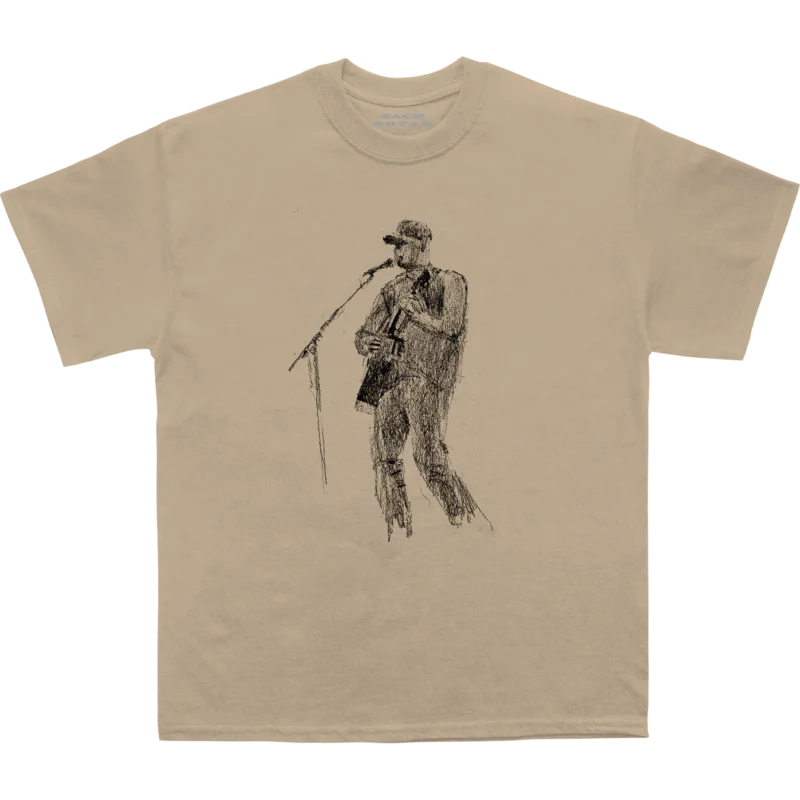Michigan Show Collection: Shows, Workshops & Local Arts

Michigan Stage & Soul: The Complete Guide to the Michigan Show Collection, Workshops, Talent & Community
Introduction
We welcome you to an exhaustive, hands-on guide to the Michigan show collection—a map for audience members, performers, teachers, funders, and curious neighbors. We cover everything from upcoming plays in Michigan and theater showtimes Michigan to acting workshops for beginners, community art funding opportunities, and behind the scenes Michigan theater features. Whether you want to buy local theater tickets, audition for a community theater performance in Michigan, or learn how theater productions are made, this guide places practical steps and insider perspective at your fingertips. We write in plain language, with clear steps, examples, and a few metaphors—because theater is like a living, breathing machine: a set of gears, people, and light that must mesh perfectly to create a night to remember. Read on, consult the Table of Contents, and jump to the section that helps you now.

1. Michigan Show Collection & Live Performances
Overview & What We Mean by ‘Michigan Show Collection’
The Michigan show collection refers to the living catalog of theatrical output across the state: drama productions Michigan, musicals, family offerings, avant-garde experiments, and community plays. We track offerings from major stages and small storefront theaters alike so readers can see the full ecosystem.
How We Curate Live Performances
We prioritize live performances in Michigan that vary by scale and mission: professional seasons, community theater performances Michigan, youth showcases, and festival lineups. For each show we recommend, we note theater showtimes Michigan, venue accessibility, and ticket types—standard, discounted, and group packages.
Audience Experience & Accessibility
We ask: what makes a show worth seeing? A great night blends clear acting, compelling staging, and audience engagement. We highlight familyfriendly theater Michigan options, accessibility features, and community outreach efforts that bring theater to seniors, students, and underserved neighborhoods.
How to Use This Collection
Treat the collection as a living playlist. Bookmark productions, compare local theater tickets across venues, and sign up for mailing lists. If you’re searching for a personal fit—theater groups near me or an audition—use the collection to match your interests with the right scale and mission.
Why It Matters
The collection is more than listings; it’s civic tissue. A diverse Michigan show collection contributes to local identity, education, and economic vitality. We encourage readers to both attend and participate, because theater thrives when audiences are both present and invested.
2. Upcoming Plays in Michigan
Seasonal Highlights & Finding Show Schedules
To track upcoming plays in Michigan, we recommend a dual approach: follow venue calendars and subscribe to city arts newsletters. We look for seasonal patterns—summer musicals and fall drama productions Michigan—so you can plan.
Types of Upcoming Shows
Expect variety: regional companies stage classics; university theaters mount experimental work; community theaters organize local premieres. We call out theater festivals in Michigan and performing arts showcases Michigan where many upcoming premieres cluster.
Planning Your Visit
When selecting shows, confirm theater showtimes Michigan, ticket policies, and family-friendly seating. Look for local theater tickets bundles, discounted student tickets, and discount theater tickets Michigan events—often offered for previews or community nights.
What to Watch For
Upcoming plays can reveal trends: a surge in new plays by local playwrights and productions, or collaborations between playwrights and actors. We highlight shows that feature rising stars in Michigan theater or premieres that might signal future theater award winners Michigan.
Practical Tips
We recommend buying early for popular runs, checking refund and exchange policies, and signing up for community alerts for last-minute local casting calls Michigan if you’re looking to get involved rather than attend.

3. Community Theater Performances in Michigan
Scope & Value of Community Theater
Community theater performances Michigan are the grassroots core of our cultural life. These productions are where new performers learn their craft, local playwrights test material, and neighborhoods gather. They are often low-cost, high-heart events.
Organizational Structures
Community troupes vary: volunteer-run companies, municipally supported arts centers, and school-affiliated programs. We detail how each model affects production values, theater production timelines, and opportunities for newcomer involvement.
Getting Involved & Participation Pathways
Curious about how to participate in local theater? Community theaters welcome volunteers—props, ushering, set builds—or cast newcomers via auditions for community theater. Many offer community theater workshops and community theater acting classes geared toward beginners.
Funding & Sustainability
Community groups rely on small grants, local sponsorships, box office income, and fundraisers. We point to community art funding opportunities and local business sponsorship for arts that allow productions to keep ticket prices reasonable.
Impact & Stories
Community productions often spark lifelong involvement—actor success stories from Michigan sometimes start here. We recommend supporting these companies as a public good: they amplify local voices while creating meaningful social bonds.
4. Theater Festivals & Performing Arts Showcases in Michigan
Why Festivals Matter
Theater festivals in Michigan and performing arts showcases Michigan concentrate energy: they introduce new work, connect professionals, and create discovery opportunities for audiences. Festivals often include fringe shows, workshops, and panels.
Major & Regional Festivals
Across Michigan, festivals range from large city events to neighborhood showcases. They draw local cultural events in Michigan visitors and often overlap with Michigan art and music festivals or Michigan art and food festivals for a cross-disciplinary experience.
Festival Programming & Opportunities
Festivals feature curated runs, pop-up performances, workshops for high school students, and networking for interviews with Michigan creatives. They frequently host behindthescenes theater tours and offer backstage access for donors or ticket holders.
Benefits for Artists & Audiences
For artists, festivals provide visibility—Michigan theater showcases are a testbed for new plays and collaborations between local playwrights and actors. For audiences, festivals are efficient discovery engines: see multiple live performances in Michigan in one weekend.
How to Make the Most of a Festival
Plan: pick must-see shows, allow time for workshops, and prioritize events that match your interest—family shows, musicals, or experimental drama. Budget for one or two premium shows and supplement with free or low-cost offerings.
5. Theater Showtimes, Local Theater Tickets & Discount Options
Finding Showtimes & Tickets
We advise using venue websites, city arts calendars, and centralized ticket platforms to find theater showtimes Michigan and purchase local theater tickets. Sign up for venue mailing lists to access early-bird or subscriber discounts.
Price Tiers & Comparison
Ticket prices vary by venue, production scale, and seating. Compare Michig an theater ticket prices comparison across similar venues: community stages typically have lower prices than regional professional theaters. Look for discount theater tickets Michigan programs—student rush, pay-what-you-can nights, and preview discounts.
Group, Subscription & Membership Options
Many theaters offer season subscriptions, which lower per-show cost and guarantee the best seats. Community theaters may have memberships with perks like backstage tours or priority for local casting calls Michigan.
Box Office Tips & Accessibility
Check refund, exchange, and late-entry policies. Confirm accessibility services for hearing, vision, or mobility needs. For family shows, confirm run time and age suitability—familyfriendly theater Michigan often markets these details.
Resale, Deals & Last-Minute Tickets
Use reputable resale platforms when official tickets sell out. For spontaneous plans, check day-of discount platforms or the theater’s rush policies to find affordable seats.
6. Theater Reviews, Critiques & Top-Rated Performances
What Makes a Useful Review?
A good theater review balances description, evaluation, and context: what happened on stage, how well it was executed, and why it matters. We value reviews that consider acting, direction, design (costume, set, sound and lighting), and audience impact.
Finding Reliable Reviews
Look to local outlets for theater reviews Michigan shows, regional critics for broader context, and community blogs for grassroots voices. We recommend reading multiple perspectives, from michigan theater reviews and interviews to audience comments.
Top-Rated Performances & Criteria
Toprated theater performances combine strong book, compelling direction, standout performances, and technical excellence. We highlight recurring winners and theater award winners Michigan when available, noting what made those shows stand out.
Musical Reviews & Drama Distinctions
Reviews of musicals often focus on score, choreography, and vocal performance—see reviews of musical performances Michigan—while drama reviews emphasize script clarity, acting nuance, and emotional truth.
How to Write a Helpful Review
If you review a local show, be specific: name standout scenes, cite director choices, and comment on audience engagement. Constructive reviews help theaters improve and guide audiences to the best experiences.
7. Behind the Scenes: How Theater Productions Are Made
The Production Lifecycle
We break down how theater productions are made into stages: concept and commissioning, casting, rehearsal, tech, previews, run, and strike. Each phase requires different teams and timelines—theater production timelines—and the process is similar to building a house: foundation, frame, interior, finish.
Rehearsal & Creative Process
Theater rehearsal insights show how scripts are shaped through run-throughs, blocking, and notes. Directors, actors, and designers collaborate and iterate; actors rely on actor preparation for performances including vocal work, movement, and character study.
Tech & Integration
When technical elements arrive—sets, lights, sound—the production moves into tech rehearsals. This is where sound and lighting for theater shows are balanced with staging and actor pacing.
Previews & Opening
Previews allow adjustments with real audiences. Post-opening, a show settles into a routine. We note the role of stage managers as the logistical backbone, coordinating cues and solving daily problems.
Common Production Challenges
We identify common issues: budget shortfalls, scheduling conflicts, technical hiccups, and cast changes—theater production challenges
8. Set Design, Costume Design, Sound & Lighting for Theater Shows
Design as Storytelling
Design elements—set design in local productions, costume design in theater, sound and lighting for theater shows—do more than decorate; they tell story, set tone, and shape audience attention.
Set Design Essentials
Sets must solve both practical and symbolic needs. For smaller troupes or small theater productions, modular or suggestive sets stretch budgets while retaining impact. Good set design coordinates with lighting and blocking.
Costume Design & Character
Costumes signal period, status, and inner life. Costume design in theater requires research, fabrication, and quick-change logistics for live performance.
Sound & Lighting Integration
Sound brings music and effects; lighting sculpts mood. For local stages, efficient cueing systems and simple but effective fixtures maximize impact without large budgets.
Collaboration Between Designers and Directors
A successful production integrates design teams with directors early. This avoids late-stage compromises and supports actor movement and safety.
Budget-Smart Solutions
We recommend resource-sharing, rentals, and community donations for materials. Local theater backstage access open days can also be a funding draw, offering patrons a peek at design work while raising money.
9. Production Roles: Directors, Stage Managers & Crew
Key Roles & Responsibilities
Every production relies on defined roles. The director interprets text and shapes performance; stage managers handle day-to-day execution and run the show; designers and technicians build the world.
The Role of Stage Managers
The role of stage managers is essential; they keep running scripts, coordinate calls, manage props, and serve as the production’s memory during performances.
Director-Actor Relationship
Directors guide actors’ choices, balancing vision with performer agency. Interviews with directors often reveal how they approach rehearsal—see interviews with theater directors for best practices.

Crew & Volunteer Teams
Local productions depend on crews and volunteers—volunteering in theater productions often covers carpentry, costume sewing, front-of-house, and marketing.
Training & Pathways
Positions like stage manager or lighting technician often begin as volunteers or interns—theater internships Michigan are an accessible way in. Formal education and masterclasses with pros accelerate advancement.
Challenges & Solutions
Scheduling, conflicting priorities, and burnout are typical. Clear communication, written policies, and crew appreciation events mitigate these issues and build durable teams.
10. Auditions, Local Casting Calls Michigan & How to Participate
Preparing for Auditions
We recommend practical steps for auditioning: prepare contrasting monologues, know your résumé and headshot, and practice cold readings. Local casting calls Michigan often list requirements—prepare accordingly.
Where to Find Casting Calls
Find auditions via theater websites, social media, local arts organizations, and notice boards at drama schools. Community theaters frequently publicize auditions for community theater and student productions.
Audition Etiquette & Tips
Arrive early, dress simply but appropriately, and be ready to improvise. Bring copies of your headshot and resume—local theater headshots Michigan are often requested.
Beginner Pathways & Workshops
If you’re new, consider acting workshops for beginners and community theater workshops to build skills and confidence before auditioning.
Beyond Acting: Crew and Support Roles
If you prefer backstage, volunteer for running crew or props. Participation can lead to paid roles or internships—local theater internships for students can later yield onstage opportunities.
How to Join a Troupe
Some troupes hold open calls or membership drives; others are invitation-based. Expressing consistent interest and volunteering builds trust—join a theater troupe by showing up and contributing reliably.
11. Acting Workshops for Beginners & Local Acting Classes Michigan
Why Workshops Matter
Acting workshops for beginners are essential to learn basics—voice, movement, scene study, and audition technique. They also reduce stage fright and build ensemble skills.
Types of Workshops & Classes
Offerings vary from drop-in community classes to semester-long conservatory courses. Look for local acting classes Michigan that focus on fundamentals, improvisation, or on-camera skills.
What to Expect in a Beginner Class
Expect exercises in vocal projection, script analysis, and partner work. Teachers will assign scenes and give constructive feedback. Workshops are often supplemented by masterclasses with theater professionals.
Online vs In-Person Learning
Online theater courses for students offer flexibility, while in-person classes provide immediate physical feedback and live performance opportunities. We suggest a mix depending on goals.
How to Choose the Right Workshop
Consider instructor credentials, class size, and opportunities for public presentation. Reviews—community theater reviews Michigan—and referrals from local performers help identify high-quality programs.
Practical Tips
Bring comfortable clothes, a notebook, and an open attitude. If you’re a teacher seeking resources, explore educational theater resources for teachers to build classroom-compliant modules.
12. Youth Programs: Summer Theater Camps for Kids & Student Opportunities
Summer Camps & Youth Programs
Summer theater camps for kids teach fundamentals, build confidence, and culminate in performances. Camps vary from single-week intensives to month-long conservatory experiences.
School-Based & After-School Programs
Drama clubs in Michigan schools, afterschool theater programs, and performing arts workshops for high school students provide seasonal or year-round training, often tied to school curricula.
Scholarships & Access
Scholarships for theater students in Michigan and local arts grants can reduce barriers. We outline sources like community foundations and local arts grants Michigan to help families fund participation.
Competitions & Showcases
Programs often lead to high school theater competitions in Michigan or district showcases, providing performance experience and college audition materials.
Internships & Career Pathways
Older students can pursue theater internships Michigan, working backstage or in administration—an excellent bridge to theatre arts degree requirements if they pursue further study.
Parental Tips & Safety
Check counselor-to-child ratios, director credentials, and safety policies. Camps that culminate in public performances teach both craft and stage professionalism.
13. Talent Spotlights: Michigan Actors Interviews & Rising Stars
Why Spotlights Matter
Spotlights and profiles introduce rising stars in Michigan theater and document actor success stories from Michigan. They help audiences follow careers and inspire newcomers.
Interview Focus & Format
We recommend interviews that explore craft, influences, training, and community ties—Michigan actors interviews that go beyond promotional soundbites to reveal process and personality.
Spotlight Series Ideas
A good series rotates features: emerging actors, veteran Michigan performers, local playwrights, and directors. Include spotlight on Detroit actors to showcase city-specific scenes.
How to Run Talent Profiles
Profiles should include headshots—local theater headshots Michigan—career highlights, notable roles, and quotes about community impact. Pair profiles with performance recommendations.
Benefits for Local Scene
Profiles attract attention to local productions and can drive ticket sales. They also create a documented history of regional talent for future researchers and funders.
How Communities Can Support
Encourage local press to run features and create festival slots for emerging artists—Michigan theater showcases are ideal platforms for featured talent.
14. Local Theater Talent Profiles, Headshots Michigan & Success Stories
Creating Useful Profiles
Profiles should be practical: contact details, representative headshots, a focused resume, and links to recent performances. For local theater talent profiles, clarity is key.
Headshots & Branding
Local theater headshots Michigan should be updated and professional. A headshot is your calling card—simple wardrobe, strong lighting, and a clear expression that reflects your range.
Success Story Templates
Documenting actor success stories from Michigan helps show feasible career paths: community theater → university program → regional company → national opportunity.
Veteran Performers & Mentorship
Include features on veteran Michigan performers who mentor younger artists. Mentorship amplifies local talent pipelines and preserves craft knowledge.
Platforms & Directories
Maintain updated directories where casting directors and producers can find talent. Cross-link profiles with social media and venue credits for visibility.
How to Use Profiles for Promotion
Actors should use profiles to secure auditions, agents, and workshop spots. Producers use profiles to recruit for cast and crew, so keep them clear, concise, and honest.
15. Community Engagement: Volunteering, Internships & How to Get Involved
Volunteer Pathways
Volunteering in theater productions ranges from ushering and concessions to stagehand support. Many theaters list volunteer opportunities in theater on their websites.

Internships & Student Roles
Theater internships Michigan can be in production, marketing, or education. They are invaluable for building résumés and understanding production workflows.
How to Volunteer for a Play
Contact box office or volunteer coordinators, fill out simple forms, and commit to scheduled shifts. Training is often provided—how to volunteer for a play is straightforward.
Community Programs & Outreach
Theaters often run outreach: school matinees, community workshops, and discounted nights. These programs increase audience engagement in theater and expand cultural access.
Join a Troupe vs. Occasional Involvement
If you want deeper commitment, join a theater troupe and help craft seasons; casual participants can still be essential via event help and fundraising.
Benefits of Getting Involved
Volunteer and intern roles build skills, networks, and local reputation. They’re stepping stones into paid work, leadership roles, or creative partnerships.
16. Funding: Local Arts Grants Michigan & Michigan Arts Council Funding
Overview of Funding Sources
Funding sustains theaters. Primary channels include Michigan Arts Council funding, local foundations, corporate sponsors, ticket revenue, and crowdfunding—crowdfunding for local arts initiatives is increasingly common.
Local Arts Grants & School Funding
Arts grants for schools and local arts grants Michigan enable educational programming. Schools and community groups can access grants through statewide or municipal programs.
Application Essentials
Successful applications clearly state goals, budgets, community benefit, and metrics. Use art grant writing tips to craft compelling proposals and highlight partnerships.
Sponsorship & Business Partnerships
Local business sponsorship for arts provides reliable support, often in return for marketing benefits or hospitality packages.
State & Federal Grants
State-level state grants for creative programs and federal funding can fund larger projects. Track deadlines and align proposals to funder priorities.
Sustainability Strategies
Diversify income: combine grants with earned income, memberships, and donor campaigns. This reduces risk when one revenue stream fluctuates.
17. Grant Strategy: Grants for Local Theater Productions & Crowdfunding
Developing a Funding Plan
Craft a plan that pairs grants for local theater productions with sponsorships and crowdfunding for local arts initiatives. Identify funders aligned with education, community engagement, or innovation.
Budgeting & Production Budget Breakdown
Create transparent budgets—theater production budget breakdown—including personnel, rights, sets, costumes, marketing, and contingency. Funders expect itemized costs.
Grant Writing Best Practices
Follow art grant writing tips: concise needs statement, clear outcomes, measurable impact, and sustainability plan. Include letters of support and audience data.
Crowdfunding Campaigns
Crowdfunding campaigns should tell a story: why this production matters locally, what rewards support tiers offer, and milestones. Promote widely through social networks and partner organizations.
Sponsorship Packages
Offer tiered sponsorships: recognition, tickets, hospitality, or naming rights for larger donors. Show how sponsorship enhances community visibility.
Tracking & Reporting
Funders expect results. Track attendance, demographics, and qualitative impact; then report with photos and testimonials to secure future funding.
18. Venues, Historic Theaters & Popular Theater Venues in Michigan
Types of Venues
Venues include downtown playhouses, black box theaters, university stages, and outdoor amphitheaters. Popular theater venues in Michigan often combine historic charm and modern amenities.
Historic Theaters & Their Value
Historic theaters anchor neighborhoods—architectural landmarks that host michigan artistic events and major productions. Preserving these spaces preserves civic identity.
Choosing a Venue for a Production
Match show needs to venue capacity and technical capacity. Smaller, intimate small theater productions thrive in black box spaces; musicals may need larger houses with orchestra pits.
Venue Management & Partnerships
Strong partnerships between producers and venue managers simplify logistics and can reduce costs through shared services.
Accessibility & Audience Amenities
Top venues provide clear signage, accessible seating, and comfortable lobbies that host concessions or Michigan art and food festivals tie-ins.
Booking & Scheduling Considerations
Plan booking windows far in advance for prime dates; seasonal festivals and holidays fill quickly. For collaboration, look for popular venues that co-produce or host visiting companies.
19. Comparisons: Michigan vs. Other States (NY, Regional Differences)
Michigan Theater in Context
When we compare Michigan vs. New York theater, scale and infrastructure differ: NY is a global hub, while Michigan offers more intimate stages, lower costs, and stronger community ties.
Regional Strengths & Weaknesses
Michigan’s strengths include strong community theater networks, accessible festivals, and lower production costs. Limitations include fewer national tours and smaller professional company budgets.
Attendance & Cultural Metrics
Theater attendance statistics Michigan show steady local interest, with peaks during festival seasons. Comparing best theater states in the US reveals differing funding structures and audience densities.
Cross-State Collaborations
Michigan artists often tour regionally, and exchanges with neighboring states create richer scenes. Comparing Michigan theater festivals vs other states reveals niche specializations and audience demographics.
What Michigan Learns from Larger Hubs
We adopt professional practices—marketing, subscription models, and education partnerships—while preserving local identity. Michigan’s scene offers pathways that larger hubs sometimes lack: leadership and production roles at younger ages.
Why Comparisons Help
Benchmarking against other states informs strategic planning: how to cultivate audiences, support artists, and attract touring work.
20. Economic & Social Impact: The Role of Theater in Michigan Communities
Economic Contributions
Theater supports jobs and drives spending in restaurants, parking, and hospitality. The impact of theater on local economies Michigan is visible in downtown revitalization projects linked to theater districts.
Social & Educational Benefits
Theater fosters empathy, civic dialogue, and youth skill development—the impact of local arts on community includes higher school engagement and social cohesion.
Community Building & Identity
Local productions reflect and shape community narratives. Theater festivals and michigan local artist showcases reinforce place-based pride.
Measuring Impact
Measure through attendance, volunteer hours, student participation, and economic multipliers. Funders increasingly require measurable outcomes in grant applications.
Sustainability & Future Growth
To sustain impact, theaters must diversify funding, invest in youth programs, and foster cross-sector partnerships—businesses, schools, and municipal governments.
Call to Action
We urge audiences to attend, volunteers to contribute, and funders to invest. Theater is a community multiplier: each ticket, donation, or rehearsal hour builds civic life.
Conclusion
A Living, Local Art Form That Needs Us
We have mapped the Michigan show collection from ticket desks to rehearsal rooms, from acting workshops for beginners to Michigan arts council funding and economic outcomes. Theater in Michigan is robust because people show up—audiences, volunteers, students, funders, and artists. Like a chorus, each role matters. We encourage readers to attend a show, volunteer, or join a class; every small act strengthens the regional stage. If you want a next step, pick a section above—auditions, funding, or youth camps—and act. Michigan’s stage is ready.
FAQs
Q1: How can I find upcoming plays in Michigan and accurate theater showtimes?
We recommend subscribing to venue newsletters, checking city arts calendars, and using centralized platforms that list theater showtimes Michigan; also follow festival pages for cluster programming.
Q2: Where can beginners find acting workshops and community theater acting classes in Michigan?
Look to community theaters, university extension programs, and local conservatories for acting workshops for beginners and community theater acting classes; local libraries and arts councils often post schedules.
Q3: What funding options exist for community theater or school arts programs in Michigan?
Options include Michigan Arts Council funding, local grants, school arts grants, corporate sponsorships, and crowdfunding for local arts initiatives. Craft proposals that show community impact.
Q4: How do I audition for community theater or find local casting calls in Michigan?
Visit theater websites, join local arts Facebook groups, and check bulletin boards for local casting calls Michigan. Preparing a tight monologue and updated local theater headshots Michigan improves your odds.
Q5: How important is theater to local economies and communities in Michigan?
Very important. Theater provides jobs, drives nearby restaurant and retail spending, supports youth education, and strengthens social capital. The impact of theater on local economies Michigan is measurable and meaningful.
